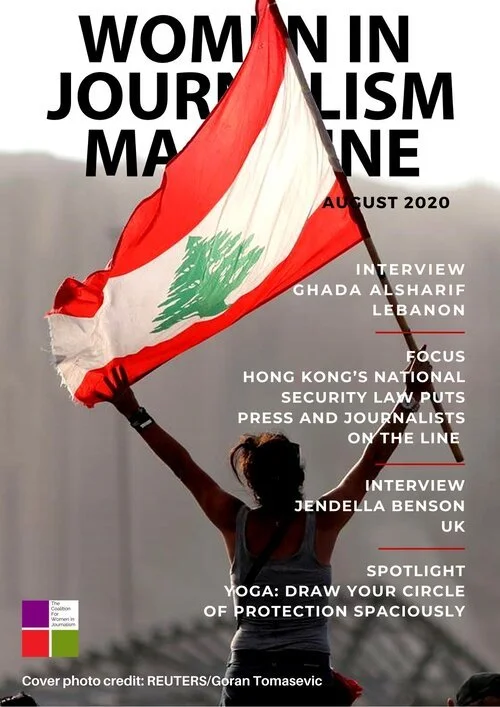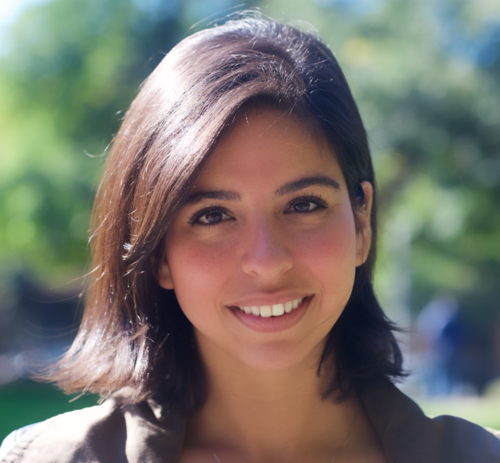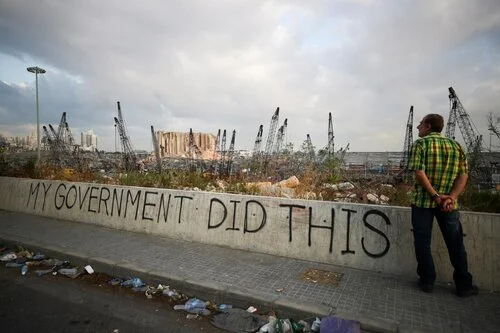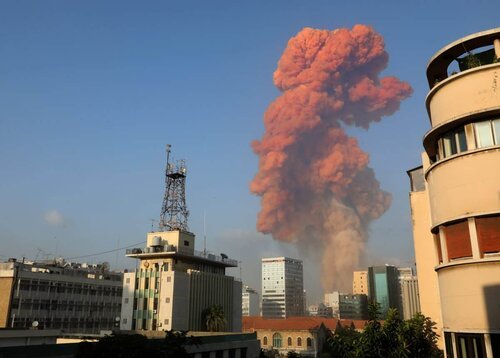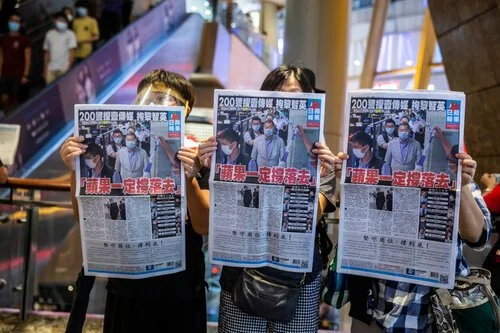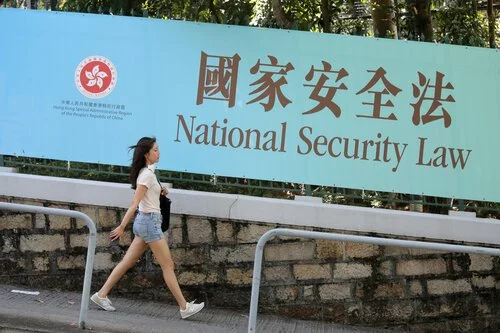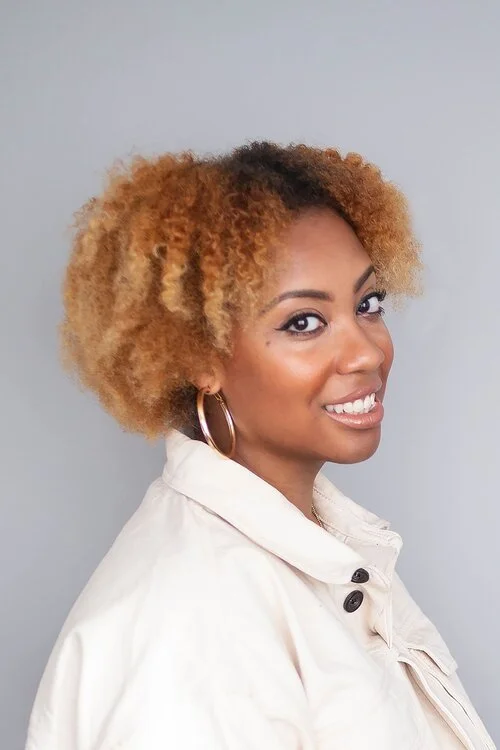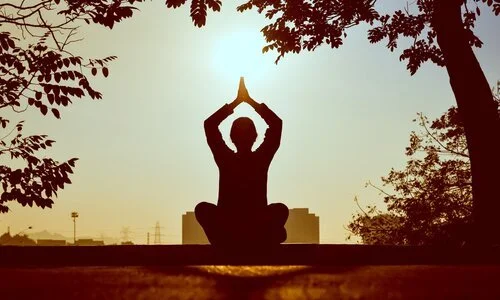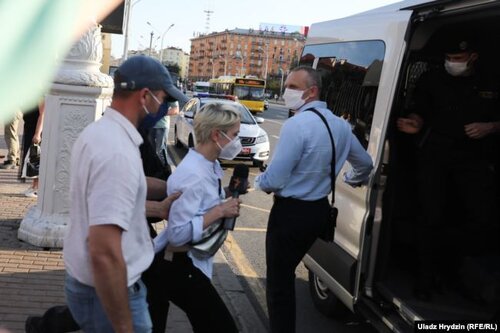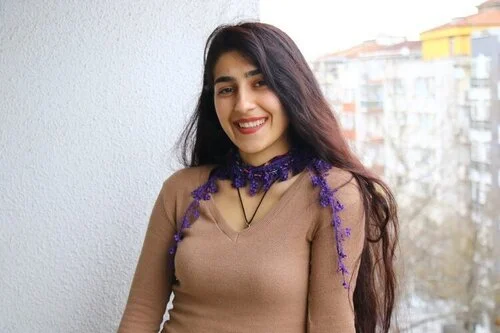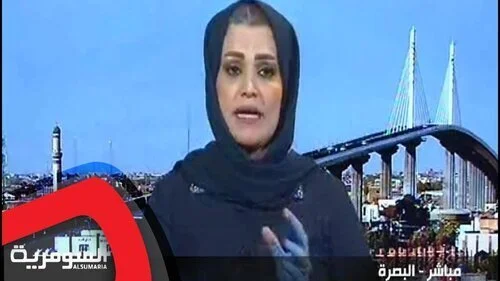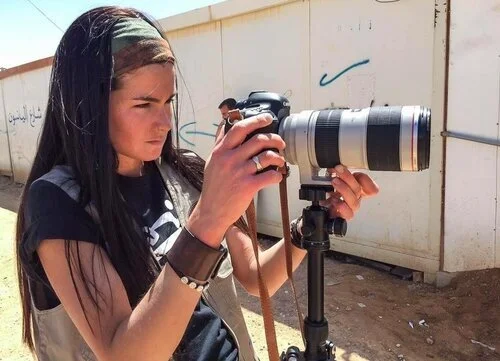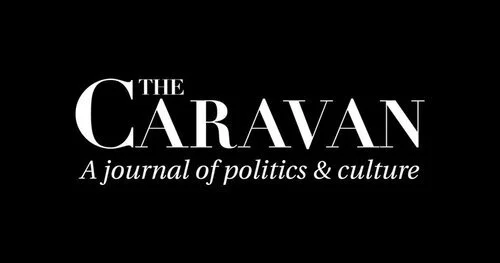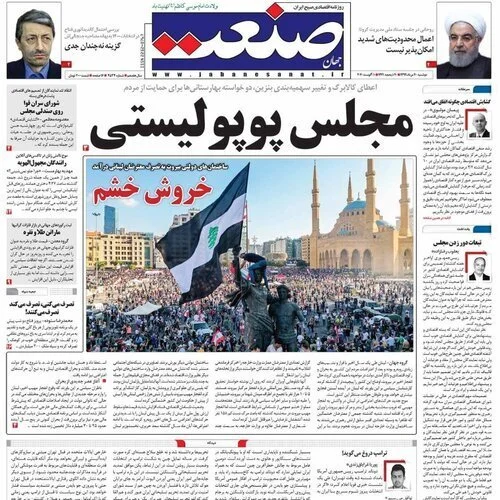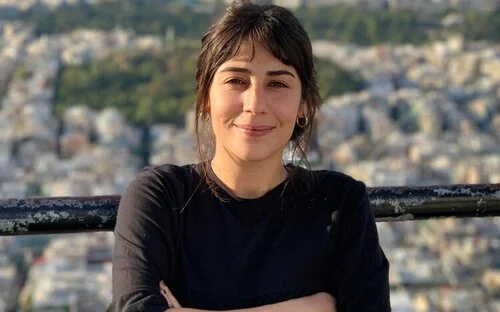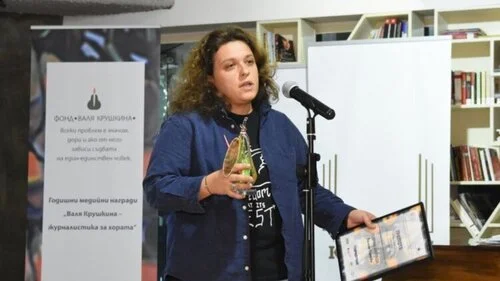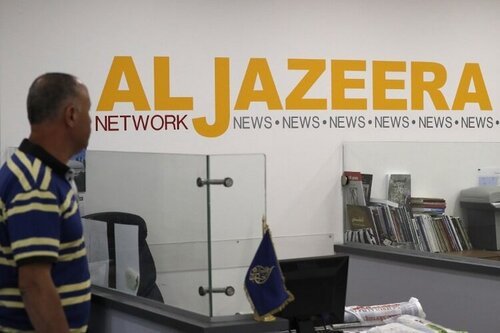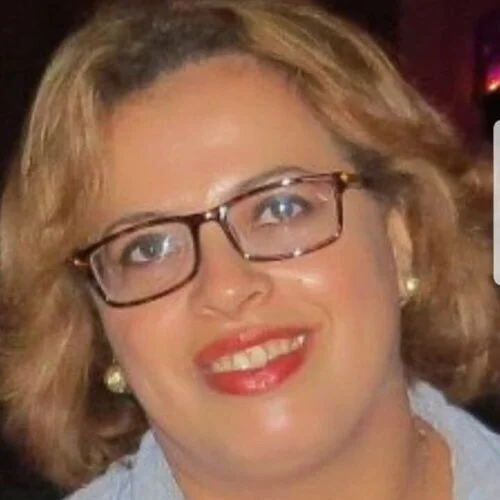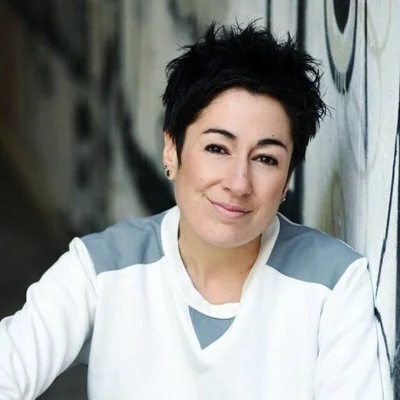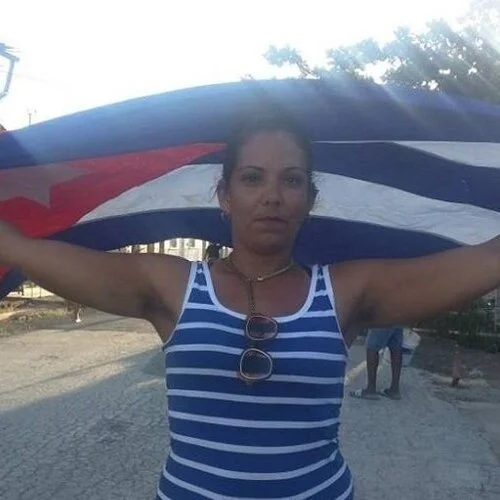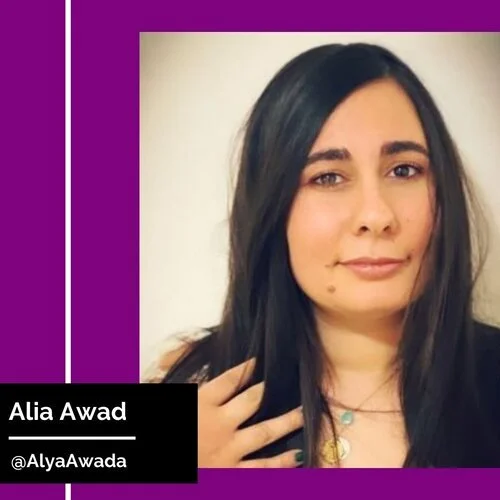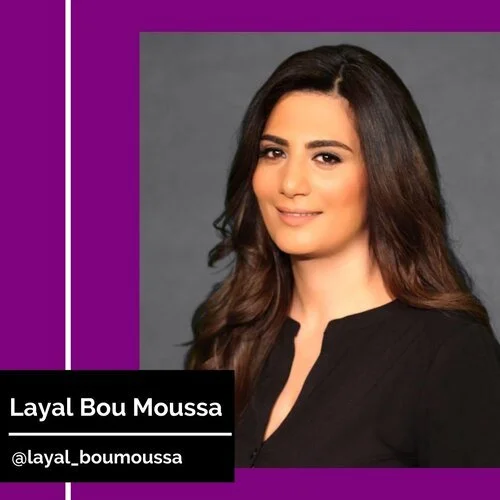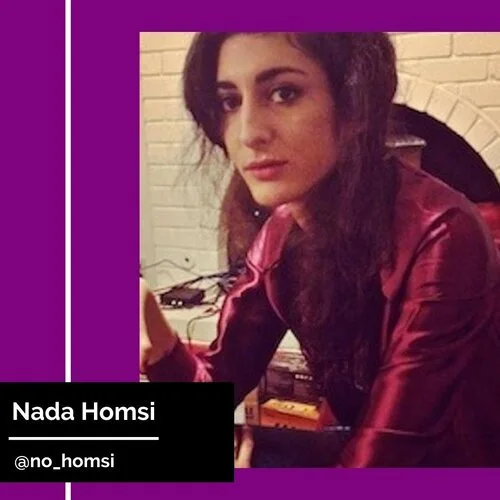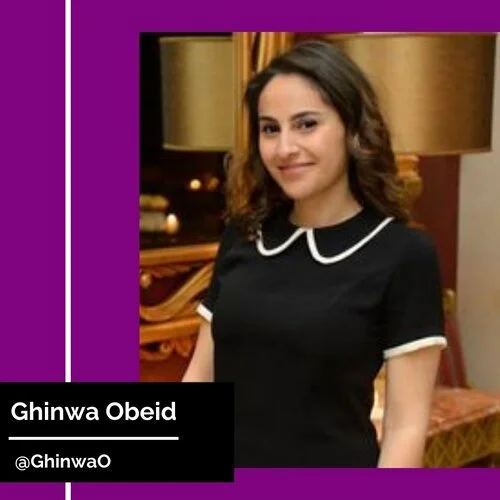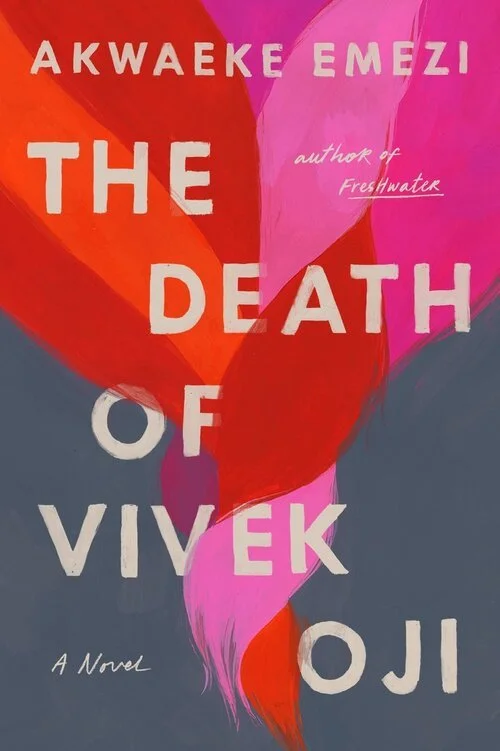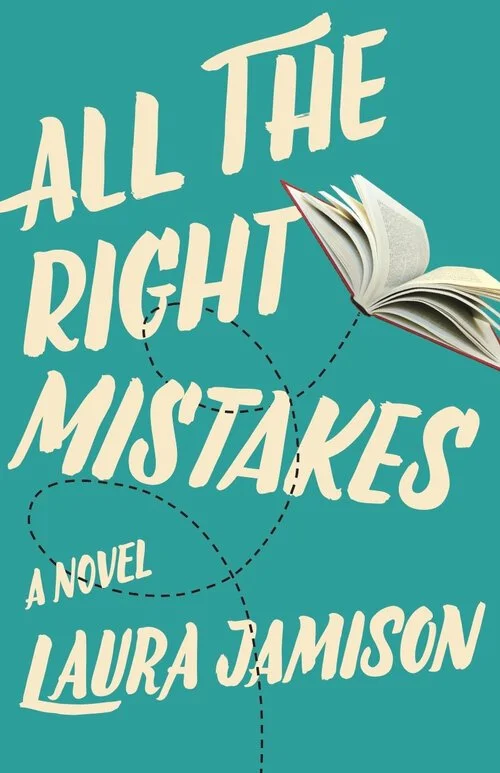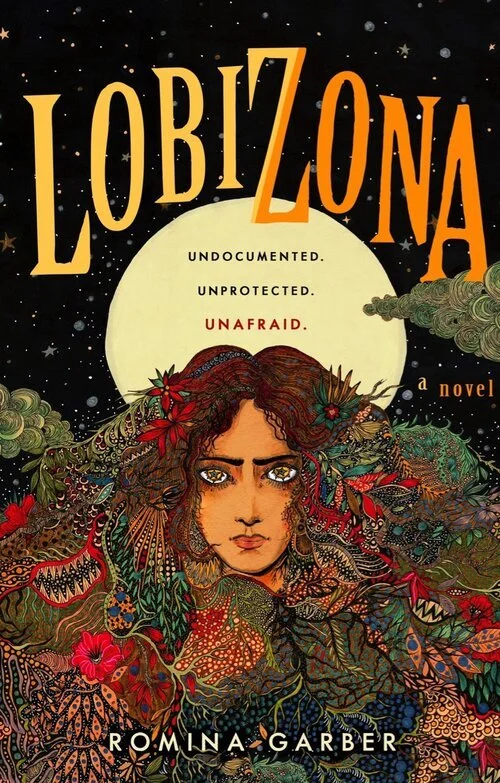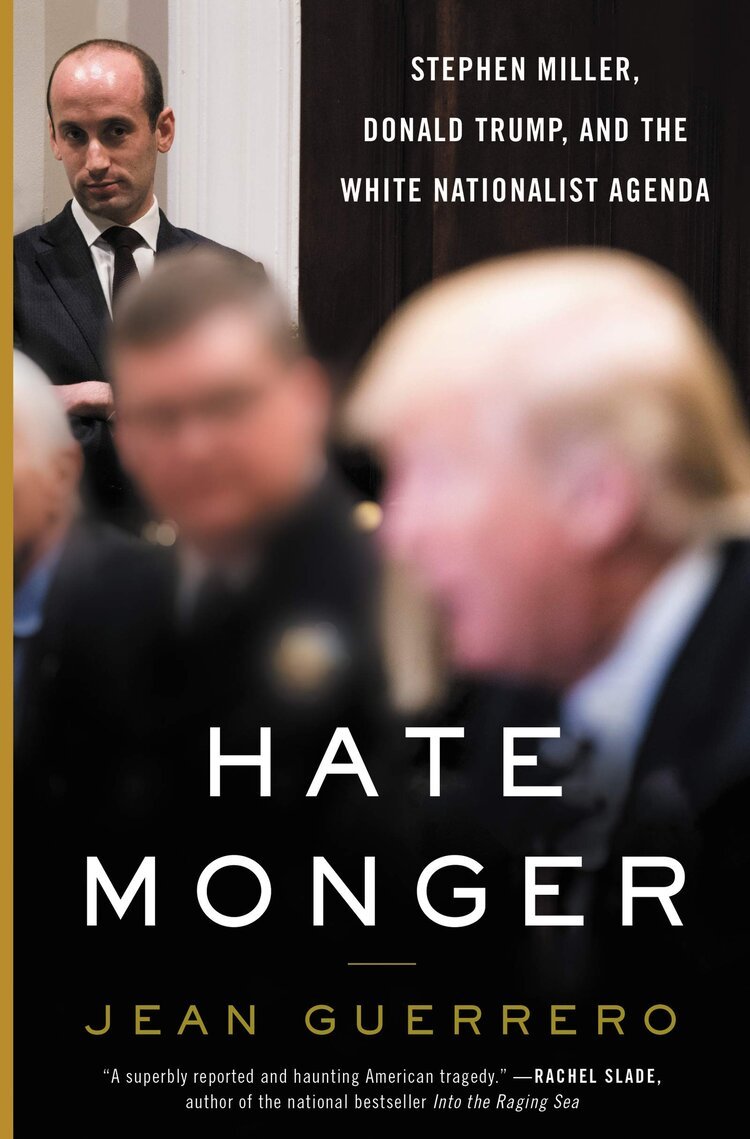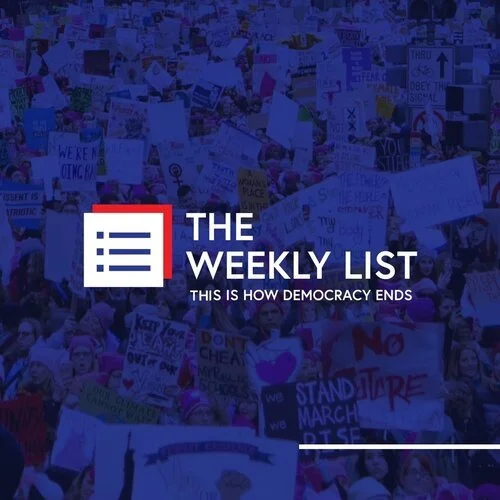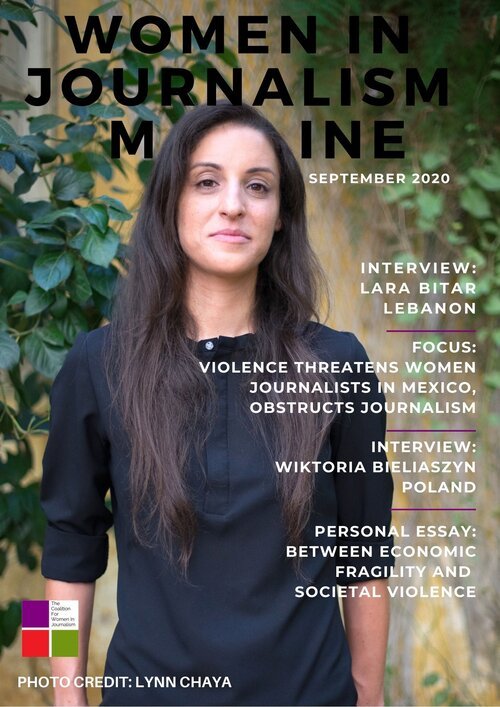August 2020 Issue
In this issue, we interview journalists Ghada Alsharif and Jendella Benson, focus on press freedom in Hong Kong, feature a round-up of threats and violence against women journalists, and share our monthly podcast picks and reading recommendations. Go read.
Editor’s Note
Hello readers,
As we're reading about the fluctuating cases of Covid-19 around the world, we hope you're all staying safe, healthy, and wearing a mask when stepping out.
We come back with our latest issue of Women In Journalism Magazine. Our August issue features interviews of two journalists - Ghada Alsharif from Lebanon and Jendella Benson from the UK. While Ghada tells us all about her reporting post-explosions in Beirut, Jendella sheds light on her editorial work at online website Black Ballad.
The magazine's focus story this month highlights the chilling effects of Hong Kong's National Security Law. We talk to some of the local women journalists about the impact of the law on press freedom and how it'll effect their own reporting.
Our Turkey coordinator Damla Tarhan writes about the benefits of yoga and meditation, and how journalists can take some time out to relax themselves in the midst of their chaotic work schedules.
In August, we documented at least 81 cases of threats faced by women journalists across the world. Our monthly review report reflects the astonishing situation of press freedom in Belarus, the devastating impact of explosions on journalists based in Beirut, and Pakistani women journalists' campaign against online harassment, along with the many cases of threats and violence identified during the month. You can follow these crucial stories from this month on our dedicated in-focus web-pages on Belarus, Lebanon and Pakistan.
In our 'Women Journalists To Follow' section, we feature four journalists from Beirut who have been reporting the aftermath of the blasts, the protests that have ensued, Lebanon's tumultuous politics and state of governance amidst the turmoil. Find more them in this month's issue.
Scroll through our regular sections providing a round up of prominent cases, podcast picks and books to read this month.
Have some feedback, suggestions or words of encouragement? Write to us on press@womeninjournalism.org
Cheers!
Kiran Nazish, Executive Editor
Rabia Mushtaq, Editor and Writer
Damla Tarhan, Design
Index
Interview
Ghada Alsharif - On Witnessing The Beirut Port Devastation And Its Aftermath
By Rabia Mushtaq
On August 4, around eight minutes after the clock struck six in the evening, Beirut witnessed one of the most horrific explosions in its history. The city was left devastated after 2,750 tonnes of ammonium nitrate blew off in Hanger 12 of its port area. It remained lying there without any safety measures in place since 2014. More than 180 people died, thousands were injured and over 300,000 were left homeless as a result of the blasts. The explosions shook Beirut, but also left the world in shock, as the day, and the destruction caused by the blasts, will forever remain etched in one’s memories.
Four days after the catastrophic explosions, Lebanese citizens took to the streets to condemn their government's negligence, same as they did amidst the country’s worsening economic crisis in October 2019. However, this time around, it was suppressed by the authorities after they imposed a state of emergency. The explosions, the protests, and the Lebanese government’s resignation were events that ensued one by one. Beirut is currently in the process of picking up its pieces after the devastation, while the country’s authorities have been failing to serve the interests of its people.
Following all these events that have yet again brought Lebanon in the spotlight, The Coalition For Women In Journalism (CFWIJ) reached out to Ghada Alsharif, a Saudi-Palestinian journalist based in Beirut. Ghada works for The Daily Star Lebanon - one of the most prominent news outlets in the country - in its Beirut office. We spoke to her over a Zoom call to understand the on-the-ground situation in the city, how she has been reporting the events in its aftermath and changes observed in the local, political dynamics, particularly as a result of the devastation that Lebanese people have endured in the past month. When we spoke with Ghada over a call, she was trying to chase a story about the cleanup in the city. “You think it’s going to slow down a bit, but then it never does,” she said when talking about the series of events that have unfolded in the country ever since the blasts.
On the day of the explosions, Ghada was working in her office as usual. She immediately dropped on the floor after the blasts jolted the entire city and wreaked havoc.
“The whole office shook, the glass exploded, parts of the ceiling fell, desks, papers and almost everything turned over. I never really lived through anything like this. It definitely shook me up,” Ghada said when speaking with CFWIJ.
She added that despite so much destruction around her, she remained safe. However, the mental toll left her shaken for days after the blasts. Ghada said that she instantly ducks and freezes after hearing any loud noise. The Daily Star Lebanon’s office was severely damaged and Ghada posted a video on Twitter showing the significant devastation in her office after the blasts. While neither Ghada nor her colleagues were physically injured, the paper’s doorman sustained a minor head injury.
“It does take its toll though. When we immediately went outside the building, we looked around trying to figure out what had happened. Around 10 minutes later, I realized that I need to write on this now,” she shared.
Ghada ran back into the building to get back to work and saw that her editor-in-chief did not leave the building at all. She immediately started typing, sitting in the damaged office, where the internet was surprisingly still working, despite the destruction. Ghada was engrossed in her work and detached from what had happened to report all the information. But much later, she realised that her house, located in Beirut’s Gemmayzeh locality, could have been damaged following the explosions, as it was one of the most impacted areas in the city, given its proximity to the port. The area, as told by Ghada, has several restaurants, bars and cafes. It is also residential. She ran to her place to get her valuables from the apartment, which indeed as she found out, was destroyed.
“When I was walking through Gemmayzeh, I saw people carrying those who were critically injured. They were emerging from under the houses and cars. I ran home and grabbed my stuff. The structure of the house itself was still standing, but the electricity had completely gone off. My front door was completely blown off and the windows were damaged. I walked into my kitchen and it looked like I was standing outside. To go into my room, I had to crawl under the doors that had blown off from the door frames. Then I grabbed my passport, money and everything I could think about, and rushed back to the office,” she said when explaining the scenes she witnessed while visiting her neighbourhood and the apartment.
PHOTO CREDIT: REUTERS
Ghada shared that after the explosions, all the reporters in her office worked for 12-15 days straight, with very little time to process what had happened.
“Most journalists in Beirut had a similar experience. We just had to keep getting the information out, keep going until something is solved here,” she said and added, “Other than that, I’m okay. I am one of the luckiest people. I’m physically okay and staying with a friend. It could have been so much worse. Other than the work-related stress, I’m doing okay,” she repeatedly said, informing CFWIJ about her safety.
However, knowing that one can never be safe in a country where the government is so negligent, leaves one fearful about the vulnerability of their life. We asked Ghada if she ever feels the same and whether the fear would ever make her leave the city, where she has been residing and working for the past two years.
“I’m human, I do of course worry about my security after this explosion. It is 100% still a thought that lingers in my head of what else could go wrong, after seeing the negligence that happened and wondering what else is hiding beneath the surface that we don’t know about. But as a reporter, I see it as my job to continue reporting. I treat Beirut as my home, and while the security situation is a lingering fear, the idea of leaving because of that has not crossed my mind — no. I wouldn’t leave because I was scared. As a reporter, I have to put that to one side and keep going. My fears are probably the same as anyone’s who has lived through something like this,” she said.
The protest, which erupted a few days after the blasts, has become one of the most unforgettable in the country’s history. The world witnessed the most powerful and moving images from Beirut. People were angry, and rightly so.
“Thousands of people gathered at the Martyrs' Square, which was the epicenter of the October 17 revolution where we saw things first kick off last year. People gathered there again five days after the blast. Uber drivers and shop owners, even the day before the days leading up to that Saturday, said ‘Just wait until Saturday’, ‘wait until you see what happens’, ‘you’ve never seen it before’. It was true. Saturday came and they called it the Judgment Day' protests, which became the most popular name given to a protest among others,” Ghada said.
“I remember speaking to a woman who said that in October we wanted them (authorities) to leave, but now we want them (authorities) to hang. I still had not seen the level of anger, up until that day. People were trying to regain whatever semblance of power they had in that moment for the lives that had been lost. At least 180 people died, over 7,000 were injured by the explosion. It was embarrassing and humiliating for them because they did not even receive an apology from the authorities nor an explanation for why that happened,” she shared her experience of speaking with people on the ground.
Ghada compared the 2019 demonstrations with the recent ones, yet emphasizing that rage she witnessed among the protestors now, has intensified to a massive extent.
“During the 2019 protests, the majority of protestors would start leaving if tear gas and rubber bullets were thrown at them, while some would stay. This time no one moved. People would move a little, but the crowd stayed. Even though really upsetting and sad, it was incredible to see those scenes. There was an element of ‘enough’. People had lit a couple of ministries on fire that day, which we hadn’t seen before. They lit a massive construction truck on fire. There was a lot of anger and people were saying enough is enough,” she said.
Two days after the protests, the Lebanese government stepped down. Prime Minister Hassan Diab resigned, following a number of resignations from his cabinet of ministers. However, it has not calmed people down, as they do not find Diab’s administration completely responsible for everything that has happened in the country. Instead they blame the previous government for all the mess. This way Ghada explained to us the broader context of current social unrest.
After the explosions, it was difficult to spot any signs of governance in Lebanon. However, the country’s President Michel Aoun decided not to step down to avoid a ‘power vacuum’. We asked Ghada about her observations of the situation, given the local and political dynamics.
“When you talk about the power vacuum, you talk about individuals who have been in power for decades - and their grip on power is unbelievably strong. We saw a revolution happen on October 17. It was massive, nationwide, and he (the President) did not step down. These guys - whom the public sees as responsible for the blasts and for everything just the way the country is going - have been in place since the Lebanese Civil War. Lebanese people do not know where to even begin when trying to get them down. Citizens have protested, lit things on fire, got blown up and still the political system is in place. There is helplessness among the Lebanese, because they don’t know what the solution is,” Ghada said.
She further added that a lot of people - not all - would like is to see an overhaul of the entire sectarian, political system, which they perceive as the main issue, the core of the problems right now, which is negligence and corruption. Ghada said that it’s just that the systemic corruption and negligence has been epitomized in a way by the explosions.
According to a popular belief, Beirut - as symbolized by the phoenix - will rise again. The city has been through so many disasters, yet it somehow manages to get back on its feet. We asked Ghada what she thinks about the damage that the explosions have done to Beirut, how it will be assessed and if the city will rebuild again, as we have already seen the community coming together to help one another during the recent destruction.
“It’s a tough thing to assess. A lot of people who have found other places to stay and might be able to patch up their homes, don’t really want to go back because of trauma, as they saw the destruction to their buildings and it is not safe enough to live inside them following the explosions. Following the government's lack of response to the explosions and devastation, people can see that they are on their own and have to clean up this mess without any assistance,” she said.
PHOTO CREDIT: ANWAR AMRO FOR AFP
Ghada informed us that a lot of the immediate response came from volunteers in Beirut and even those coming from outside the city. She shared that they came to pick up a broom to sweep up the glass and debris. A lot of foreign aid arrived. NGOs and grassroots initiatives mobilized people to help clean, and also to distribute food and clothes.
“It was honestly one of the most incredible things I’ve seen because within a week, most of the glass that had covered every inch of the street in Gemmayzeh, was cleaned up. There were tents set up, hundreds of people were sweeping the streets, giving food and medical aid. When you see that kind of community mobilization, you’re encouraged by that but then you’re also discouraged because no one else from authorities was really helping or explaining what the next steps were. It just further added to this feeling of helplessness, as a result of the response, or the lack thereof, by the authorities. In terms of rebuilding it is really not clear how quickly it’s going to happen,” she further added.
Given the ongoing political turmoil and the repercussions of the Beirut port explosions, we Ghada asked what the future of Lebanon looks like.
“I’m very hesitant to answer that question because it can go one of many ways,” Ghada said.
She further added that reforms have to be implemented and change is needed.
“I don’t know whether structurally things need to change or whether certain reforms need to be implemented. Response needs to be given to the people as to why this happened. Those who are responsible for it should be held accountable and a proper investigation needs to be done. Unless these things happen, I really don’t think it is going to be good, but it’s just a matter of time. If the (political) structure stays the way it is, I don’t really know how much change or accountability will be implemented after that,” Ghada said, as we concluded the interview.
Reporting Amidst Fear: Hong Kong’s National Security Law Puts Press And Journalists On The Line
Women Journalists Share Apprehensions Of Reporting Under The Controversial Law With Radical Changes On Display
By Rabia Mushtaq
Hong Kong’s new national security law came into effect on June 30. Roughly one month later, citizens of this Special Administrative Region controlled by The People's Republic of China witnessed unprecedented oppression of the press. Jimmy Lai, a 72-year-old media tycoon, was handcuffed and arrested from his home by Hong Kong police on August 10, for allegedly “colluding with foreign forces”. Headquarters of Apple Daily, a flagship newspaper operating under his media company Next Digital, were raided by 200 officers following the arrest.
PHOTO CREDIT: ISAAC LAWRENCE - AFP
Hong Kong police tweeted that seven other people were taken into custody on “suspicion of breaches of the #NationalSecurityLaw”. The tweet further stated that the “offences include collusion with a foreign country/external elements to endanger national security, Article 29 of the #NSL” and that an investigation was underway. Among the seven taken into custody were Lai’s two sons and some top members of Next Digital.
Journalists and advocates of press freedom were left shaken after the major media organization and its owner became a target of the controversial made-in-China law, comprised of 66 articles that criminalizes secession, subversion, terrorism, and collusion with foreign or external forces. Anyone found guilty of violating the law could face imprisonment, up to a life-sentence. The People’s Republic of China bypassed the local legislature and breached the principle of non-interference in Hong Kong’s governance.
The law has pushed its press freedom into an existential threat. It clearly shows that Jimmy Lai and Apple Daily were persecuted for their pro-democracy stance and critical take of the government. While China considers their intercession as bringing stability to Hong Kong, critics fear that this is the end of press freedom in the city-state, as the law curtails freedom of speech and protest.
Mary Hui, a Quartz reporter based in Hong Kong, deemed the ongoing situation a “distressing and disturbing time for the press in Hong Kong”.
“While the Hong Kong government continues to repeat its assurances that the city will keep the freedom of the press, what we have seen in the weeks following the national security law's implementation suggests anything but. Notably, Carrie Lam has couched the discussion of media freedoms in quid pro quo terms. Lam, in a press conference last month, stated that she will uphold press freedoms only if journalists can commit to not violating the national security law. The problem lies therein: the law is written so vaguely that no one, including journalists, has a clear idea of what amounts to an offence,” she said when sharing her views about the current display of media suppression in Hong Kong.
Mary articulated the feelings of shock, outrage, and revulsion within the media after the arrest and raid took place earlier in August.
“The brazen arrest and raid is a direct assault on the press, and shows us what the Hong Kong and Beijing government are willing to do to eliminate voices of opposition,” she said.
The use of vague terminology in the law leaves little room for journalists to feel safe from being targeted. However, will that change anything for those working in the field? One can never predict, but the current situation reflects that radical changes are already underway.
Siaw Hew Wah, a senior editor at a Hong Kong-based magazine, shared that limitations already existed, regardless of what the law entails.
“My duty is to do in-depth feature writings, which are often related to social or political issues, such as social movement, government policies, etc. Before the enactment of the national security law on Hong Kong, I have already been facing quite a lot of limitations, as we call it the ‘hidden red line’,” which means there are some topics we are not suggested to touch on,” she said.
Siaw further explained that the “hidden red line” was mostly related to issues rooted in China — particularly human rights violations. However, the limitations have now narrowed down the topics that one can or cannot work on.
“I am suggested not to do ‘sensitive topics’ by my company, as all the journalists in Hong Kong are facing danger of going to jail if we have touched the ‘red line’. I inevitably feel threatened. As a journalist my duty is to disclose the truth, provide good values to the readers. I avoid self-censorship but I am scared that I may touch on the ‘hidden red line’,” she said.
A*, an Apple Daily reporter who requested to remain anonymous, echoed Siaw’s sentiments about keeping away from ‘sensitive topics’.
“Since 2019, things have worsened. Not only do we have to worry about our own safety, but also be more cautious about our interviewees' safety. For instance, when interviewing participants of the anti-extradition law movement, I was more worried than the interviewees themselves… and since the national security law has been implemented, the fear is getting much bigger than ever before. I remind myself not to fear because that is how tyranny works, it is hard not to fear at all,” she said.
A* added that when she writes about ‘politically sensitive topics and interviewees’, she avoids using her byline, in fear of negative repercussions on both herself and her family.
Sharing her views on Lai’s arrest and the events that ensued, A* admitted that she was scared for herself and her colleagues working at the publication, all of whom now fear similar persecution. However, she is hopeful to continue working in the face of oppression.
“This incident strengthens my determination to keep going as a reporter in Hong Kong. Fear of being arrested has intensified, but at the same time, we do not want to be defeated when facing such unreasonable tyranny. Only truth can uphold justice. I feel like reporters should bear some kind of social responsibility to uncover injustice and show the truth to the public. I still think there is space and freedom for reporters, though freedom of press has been deteriorating quickly,” she stated.
Shirley Leung, a senior reporter at Apple Daily, shared her nervousness about the law and deemed it “white terror”.
“Since the red line drawn by the national security law is now very blurred, we simply do not know what topics or words would violate this law. Somehow, we might have to self-censor while reporting and writing. This is absolutely white terror. In my opinion, press freedom is diminishing and will soon cease to exist,” she said.
PHOTO CREDIT: KIN CHEUNG - AP
After what happened with Lai and Apple Daily, Shirley added that it has intensified fear within the industry, particularly those working for the publication.
“I myself work in Apple Daily’s General News section and found this incident very impactful. The fear has definitely intensified, and it is only a matter of time before the government tries to stop the publication from running, by using the national security law. As for the media industry, I think everybody is looking at the reaction of Apple Daily and its future development as a benchmark on the red line. I think it is the white terror atmosphere that the government wants to create, and in effect, the media industry would be more ‘obedient’ after the incident.” Shirely opined.
Despite the fear of being misconstrued, Laurel Chor - a Hong Kong-based freelance journalist - shared a slightly different perspective on how the law will impact the way she would work.
“As journalists, we are just doing our job the same way we always have. But for the first time, I do fear what if the government targets me. I’m a freelancer and work for a lot of western media companies. I go on TV and radio, give interviews and now I wonder if they can be misconstrued. It is worrying, but at the same time I don’t think any of us are going to change the way we work,” she shared.
Laurel added that journalists will now have to be more careful about protecting their sources, as well as being aware of legal implications and the legal resources available to them.
“We (journalists) are all more cautious, aware and more practiced about protecting ourselves and our sources. It is certainly harder to talk to people now because you worry about your sources or subjects and don’t want to put them in harm’s way under this new law,” she said.
Laurel concurred the state of press freedom was declining in the semi-autonomous Chinese territory in light of recent events.
“We are still figuring out the implications for press freedom, but so far it seems like journalists are certainly worried about how something they write could potentially be seen as a crime under the law. They are probably more afraid than ever and not just because of what happened on August 10,” she said. These implications include the denial of visas to foreign journalists, as their visas will now be processed under the new national security bureau.
The fear is valid, as foreign journalists in Hong Kong are experiencing delays in visa issuance during a time when relations between U.S. and China are becoming increasingly tense. Even European journalists are facing the consequences of growing oppression in Hong Kong. Aaron Mc Nicholas, an Irish journalist and incoming editor of the Hong Kong Free Press, was denied a work visa after months of waiting.
Changes in the visa issuance process, the delays and consequent denials are deemed as “a weapon in international disputes” by the Foreign Correspondents' Club (FCC) in Hong Kong. After China suggested imposing countermeasures on U.S. media, this warning comes as no surprise.
“The Foreign Correspondent's Press Club of Hong Kong has written a number of letters to the government in past weeks seeking clarification on how, exactly, the national security law will affect the media. Meanwhile, journalist unions have just filed a joint judicial review challenging a recent warning issued by the government to the public broadcaster RTHK over an episode of its satirical show that allegedly "insulted" the police force,” Mary informed, shedding light on the FCC’s efforts in the past few weeks.
Despite local and international condemnation, Hong Kong’s government passed the law. While independent media and journalists might not practice self-censorship among the mounting pressure, some may have to resort to taking necessary steps to avoid being tried under the draconian charges. In July, Hong Kong police arrested four youths, including three males and one female - all of whom were students aged between 16 to 20, for their social media posts. Booksellers and publishers are also at the risk of running afoul of laws following vague terminology. They felt the law’s chilling effect before it was even implemented.
“Libraries have started taking books off the shelves, state-owned media have started taking down outlets and there are reports of people deleting old articles and social media posts. So, for an average person, there will absolutely be self-censorship,” Laurel said.
She added that Hong Kong’s free press is part of what makes the country special. Despite the hurdles, Apple Daily live streamed the raid and continued to design the next day’s paper, its front page bearing the photograph of Jimmy Lai with a headline that read ‘We’re going to keep fighting’. Additionally, there are reports of artists sharing dissident art online to resist censorship.
A* reiterated Laurel’s thoughts on self-censorship but also shared that the future is still unpredictable.
“At this point, I do not think things have worsened in Hong Kong. We still have some kind of freedom of speech. But I am not optimistic about the future, so it may come true someday, we just do not know when exactly this will happen,” she said.
Shirley, however, remains cautious, following fears related to the law.
“I created a page on social media last year with my true identity on it, with more than 20,000 followers. I have deactivated it after the new national security law was enacted. One can never tell what would happen under the law because we never know where the red line is,” she said.
Mary said that there is no way of knowing whether interviewing and quoting someone who's been arrested under the national security law, like Jimmy Lai, can be deemed in violation of the legislation.
“I do think it is very much within the realm of possibility that the authorities may try and argue that showing support on social media for someone like Jimmy Lai, and writing news articles that are critical of the arrest and newsroom raid, can amount to aiding and abetting,” she said.
When responding to a question about the future of journalism in Hong Kong, especially for women journalists, Mary mentioned that it has always been a challenging industry to work in, given its relatively low salaries and the city's high costs of living.
"The national security law, needless to say, has made it even more difficult. Hong Kong is one of the most important stories in the world right now, and I hope journalists will be able to continue reporting on it in spite of all the challenges,” she stated.
Siaw shared that despite the obstacles, women journalists are more eager to join the industry, given the increase in the number of journalism graduates.
“In the past, students who graduated from journalism will tend to find other jobs instead of being journalists. In these past two years, more graduates chose to enter the industry to fight for justice, human rights, and freedom in Hong Kong,” Siaw said.
A* does not seem too optimistic about the future. Working as a journalist in Hong Kong, according to her, is hard. The low pay, tough and unsafe working conditions, in addition to the suppression of the press make it difficult to stay in her field. Even so, she does not want to give up, driven by an aim to see democracy and freedom reign to its utmost potential.
Even though A* does not believe in segregating the work of journalists based on their gender, she does feel that the situation could become increasingly difficult for women journalists, given the implementation of the national security law.
“Women journalists may face more sexual harassment and discrimination by police than male journalists, as female activists and demonstrators also face similar issues. They are teased by the police for their physique and appearance,” she said.
After having faced police brutality and harassment – her personal data disclosed on a pro-Beijing website – Shirley’s words resonated despair. She stated that the risks for all journalists would be similar, but the situation would be tougher and harsher for women journalists.
“Young journalists must be very aware of the risks, especially when working in situations such as last year's social movement. I have seen quite a number of occasions of young women journalists being shot with rubber bullets by the police,” said Shirley.
Press and journalists in Hong Kong have been under immense pressure since covering the 2019 protests, triggered by the extradition law in the country. Not only were journalists injured while reporting on the ground, but several journalists were targeted online for their stories on the matter, which only escalated with time. The national security law has intensified the fear of persecution within the industry, though many still believe that sharing the stories and speaking the truth must not be sacrificed in the face of threats.
Shirley believes that the best way to fight is to continue reporting, regardless of threats, in order to uphold the freedom of the press. She urged that those who believe in press freedom should support it financially by buying newspapers or subscribing online.
“The general sentiment is sad and quite hopeless indeed, but Hong Kong’s people still find their way to show their support for freedom of press,” she said.
Hong Kong’s Basic Law entails freedom of the press, but the country’s poor performance in the past few years reflects a grim picture in press freedom indices. Media in Hong Kong is considered to be independent and vibrant, but in light of recent events surrounding the national security law, those in the independent media are left worried – the government clearly warning them to abide by the law or be penalized for dissent. Given the murky state of press freedom in the country, which is gradually adapting to China’s suppressive ways, one can only hope to see the press remain vibrant and free.
Interview
Jendella Benson - Sharing Black Women’s Stories At Black Ballad
Jendella Benson is the Head of Editorial at the Black Ballad - a digital media platform and membership community that caters to Black women. The Coalition For Women In Journalism reached out to Jendella to understand Black Ballads role in amplifying voices of Black women in Britain, the role of race in their content and featured stories, the platform’s work following the Black Lives Matter protests this year and issues that Black women face in Britain. Read on.
Let's start with Black Ballad. Tell us all about it.
Black Ballad is a digital media platform and membership community. It started as a free online magazine in 2014, and then relaunched in 2017 with a membership model. All our articles are written by black women and speak to the experience of being a black woman in Britain and beyond. We cover a range of topics from beauty to politics, to popular culture to activism. We also host regular events – recently transitioning to online events due to Covid – and have a Slack community for our premium membership tier.
How does membership access make Black Ballad different?
Membership means that we intimately know our primary audience. We can serve them better, cater specially to their concerns and their interests and we have really fostered a digital community who trust us with their stories and experiences. Also the paywall helps us create a safe space for black women online which is hard to find right now. Studies show that black women are trolled, harassed and targeted online more than others, but as black women ourselves we don't need studies to tell us what we've experienced in some form or another. That safe space has allowed us to tell really nuanced and important stories, and knowing exactly who our core audience is allows us to have conversations that are affirming and even life changing for all of us.
How long have you been working as the head of editorial at Black Ballad? What were the milestones in your personal journey that led you to want to be a part of Black Ballad?
I went full time at Black Ballad in February 2020. Before that I came onboard as commissioning editor in a part time capacity in 2018. Before I ever wrote for Black Ballad I was an avid reader, knowing how important it would be for Black British women. My journey to Black Ballad has been very unique, I'd say. I studied an art degree and journalistically I leant more towards photojournalism and social documentary projects. Then when I had my first son and couldn't do as much freelance photography work, I started writing for my personal blog. From there I got a few columns on different digital platforms over the years, including Media Diversified. Then I started writing for Black Ballad, had the opportunity to write for places like Metro Online and Indy Voices, and then came on board as an editor at Black Ballad. In reality, I've skipped a lot of steps than perhaps people would expect because Tobi and Bola – Black Ballad's co-founders – saw me and believed in me in a way that other publications just didn't.
It’s been six years since Black Ballad was established. How have you observed the platform’s growth towards becoming a crucial voice for Black women in Britain?
People may have been sceptical at the beginning, but as time has gone on we've proven why we are needed. We are having the conversations that are not being had elsewhere, whether it's as light-hearted as the economics that dictate the price of our favourite foods through the impact that the criminal justice system specifically has on our communities. Another example is our editorial around black motherhood in Britain, we're having various different conversations from medical racism and health outcomes through to different ways of looking at family, the way we raise our children and so much more. That has only grown our audience.
There are plenty of stories on the platform that amplify the voices of Black British women. Does Black Ballad also focus on stories of Black women outside Britain?
We are expanding our editorial commissions and starting to look more and more at the African diaspora as a whole. I think recent events have only highlighted how the experiences of black women the world over are interlinked in various ways, whether it be down to the fact that many of us in Britain are second or third generation migrants – so have strong links to "back home" – or due to the way that inequality in the West is replicated in different countries in very similar ways. We've told stories about Black British women's experiences migrating to different countries, but we also are starting to tell stories of black women in other countries and the way that our lives align and differ.
We have noticed that your content is very diverse, as it covers a lot of ground on Black women and their lives. As an editor, how did you make space for content after the Black LIves Matter protests sparked across the world?
I take the lead from the writers who pitch to us, from conversations I'm personally having and from what's going on in the world. We are multidimensional as people, so as much as we can have conversations about Black Lives Matter, activism, racism and injustice, we can simultaneously switch to having conversations around beauty politics, social media trends and family relationships. The content on Black Ballad reflects the conversations that we as black women are having generally, it's just a natural extension of that. I also like to keep a balance as well, mixing heavier articles with lighter content in any given week. We know intimately the toll that racism and injustice takes on our mental state as we've been living with it our whole lives, so while keeping our audience informed and empowered, I also want them to be energised, feel loved and appreciated and inspired in every facet of their lives.
What are the hardships women go through in Britain that are mostly particular to being Black Women?
I think many of the hardships that women experience because of gender – gaslighting, undermining, less pay, being patronised and not listened to – are compounded by the fact that we are black as well. So if we live in a society where whiteness and maleness is at the top of the pyramid, being black and a woman is gonna land you at the bottom. Then combine that with any other things that further marginalise you – whether that's sexuality, disability, or whatever else – and it's really, really hard. We've been having a lot of conversations around the life-threatening inequalities around maternal healthcare in this country, so that immediately springs to mind, but when you look at stats across other areas: when it comes to Covid-19 we are four times more likely to die, when it comes to educational outcomes, as children we enter the educational system on the same, if not in some instances a better, level than all other kids but by the time we come out of it we are more likely to have been excluded or not reach our potential or whatever else. This is what is meant by systematic racism and inequality. We start off just like anyone else but when we encounter the healthcare system or educational system, we somehow end up coming out worse than everyone else. While overt acts of racist aggression are certainly making a comeback (look at the stats), it's these insidious "invisible" acts that are the hardest to fight.
How do you think the Black Women culture can be represented and amplified better in mass media?
I think when it comes to coverage and articles around our culture, black women need to take the lead. Some editors see these really interesting conversations and movements and want to leverage it for their publication but don't trust black women to write about themselves and their lives and ultimately that results in really flat or inauthentic commissions. Decision makers need to allow black women the space and give them the resources to tell their stories in the best way they know how. That's it. It's that simple. But often it seems like people are more concerned with maintaining existing power structures behind the scenes while paying lip service to diversity and inclusion – and that comes across in what's produced or the way stories are told.
Yoga: Draw Your Circle Of Protection Spaciously
By Damla Tarhan
Journalists are often first responders and eyewitnesses to violent news events. Trauma reporting can take its toll, resulting in mental health effects. Under these conditions, journalists need guidance to overcome the factors that affect their mental health negatively. Following the many issues they face in relation to their gender, women journalists work with added vulnerability, which leaves them more stressed than their male counterparts. Their responsibilities are also rather diverse, as they end up juggling both professional and domestic life.
PHOTO CREDIT: PRASANTH INTURI
Yoga is one of the off-ramps to start our journey in such a difficult industry. Before covering people, we have to understand our own feelings and wishes. As journalists, being the voice of others, it is highly important to start our inner trip preemptively. This helps to create a circle of protection around us. Thanks to this journey, we can identify our strengths and weaknesses. At this point, yoga helps to build our own way as strong as possible.
Alongside its myriad physical benefits such as increasing flexibility, improving respiration and energy, as well as maintaining a balanced metabolism, yoga also helps to relax one’s mind, center attention, sharpen concentration, and create self-awareness. These abilities lend assistance to realize that we are a part of the whole universe.
So what is the advantage of feeling a part of the universe? When you realize that there is flow in the universe, you will find some answers while things are happening around you. Since everything happens because of a specific reason that we don’t know many times, we will be able to know that they affect us in many ways. These effects add many valuable things to ourselves. Even if it is something bad, this will be an experience for us which will prevent us from making mistakes in the future.
When it comes to the intensive life of journalists, yoga also helps to silence our mind during meditation. The core idea of meditation is feeling yourself in space without any anxiety, fear, and thoughts. Basically, you should not think about anything while meditating. However, while some can immerse themself in meditation in a very short time, others can take a while to explore its benefits. It doesn’t matter how long it takes for you to meditate like a yogi. What’s more important is your efforts in trying to silence your mind and experiencing peace. The aim is to try to observe our minds without any idea. Hence we will feel calm and stay at present without any past regrets and concerns about the future. Just live in the present and feel good!
If you come to your house after a tiring day of work, try to sit down, close your eyes and take a breath deeply. Keep inhaling and exhaling deeply and regularly. The key point is not thinking. Try to not think anything. See yourself under your eyes. Look at yourself. Do not judge! See yourself in space and stop the moment. Stay ay the present. This is the first step of starting yoga. Meditation! Then you will realize that your body says that it needs to be active and get stronger with yoga. Listen to yourself! And draw your circle of protection!
Round Up Of Threats To Women Journalists In August
In the month of August, CFWIJ documented 81 cases of threats and violence against women journalists. Following are some of the most prominent cases identified.
Belarus: Dozens of women journalists in Belarus attacked, detained and arrested while covering post-election protests
Throughout the month of August, women journalists in Belarus were attacked, detained and arrested while reporting protests, which erupted after Aleksander Lukashenko was declared winner in the presidential elections held on August 10.
During the initial protests in Minsk, where thousands of demonstrators were arrested and beaten on the first day alone, journalists were also not allowed to cover the events. At least 22 women journalists were detained and one was arrested for reporting the situation on the ground. Dozens of websites, including those belonging to independent media such as Nasha Niva and Mediazona among others were blocked.
More journalists faced persecution by authorities in Belarus during the second wave of detentions on August 27. Three journalists, including BBC reporters Tatyana Melnichuk and Tatyana Yanutsevich, along with RFE/RL reporter Aleksandra Dynko - were also stripped of their press accreditation by Belarusian authorities. Yulia Vishnevetskaya of Radio Liberty Russian service was first detained and then expelled.
Lebanon: Women journalists injured, lost homes after catastrophic blasts in Beirut
Beirut was left shaken on August 4, after multiple explosions took place near its port’s 12th zone, where "highly explosive" substances were kept. Following the explosions, the city was declared a 'Disaster area', and a two-week state of emergency was announced, along with a three-day national mourning period.
More than 180 people died, thousands injured and around 300,000 were left homeless as a result of the catastrophe. Many women journalists, including CFWIJ member Hwaida Saad, sustained injuries following the devastating impact of the explosions. Many lost their homes due to the damage that ripped through the city after the blasts.
Read more about the destructive impact of the explosions on women journalists on our dedicated in-focus section here.
Egypt: New charges pressed against detained journalists Solafa Magdy and Esraa Abdel Fattah
Journalists Solafa Magdy and Esraa Abdel-Fattah slapped with new charges while they are still facing prolonged detention in previous cases since 2019. They were now being interrogated pending case no. 855\2020 national security and ordered 15 days in pre-trial detention. Their new jail time will start after the end of their current pre-trial detention pending case no. 488\2019.
Solafa, Esraa and others were listed on this case initiated in 2020. However, they have been detained since October 2019. The two journalists have been detained for almost a year in pre-trial detention pending case no. 488\2020.
According to article 202 of the Egyptian criminal procedures code, pre-trial detention shouldn’t be extended for more than two years. To override this article, the Egyptian prosecution office - upon instructions from the national security - enlists detainees on new cases while they are still imprisoned.
Lebanon: TV anchor Dima Sadek slapped with a lawsuit by politicians
Nabih Berry, Speaker of the Lebanese parliament and Bassil Jubran, president of the free patriot movement are suing TV anchor Dima Sadek under defamation law for allegedly “spreading false news”.
On August 19, Dima Sadek shared her opinion about Bierut blast on her TV show “ By People’s Name”. Dima like many other Lebanese was furious and wanted the government to present factual evidence about the explosion and to hold officials accountable.
She provided some information circulated on social media accusing Nabih Berry and Jubran Basil of inaction towards the explosives packages. Some of these posts were even claiming that Nabih Berry is the importer of this package. Dima later apologized for presenting these posts that lacked evidence. The apology would normally settle the issue but this didn’t satisfy Lebanese politicians and they decided to sue her instead.
Pakistan: Women journalists’ stand up to harassers, but vicious attacks continue to threaten their safety
In August, Pakistani women journalists initiated a campaign and released a joint petition to combat online violence and hacking attempts against them. The journalists have been encountering vicious social media attacks, doxing, and hacking attempts by accounts affiliated to the ruling party and conservative, right-wing elements in the country. CFWIJ is also a signatory in the petition.
After the petition caught the attention of lawmakers, a group of leading Pakistani women journalists also attended a meeting facilitated by the parliamentary committee on human rights to address vicious online attacks against women journalists on August 18. They shared testimonies of the attacks that they are subjected to within the online sphere. Sharmila Faruqui, Member of the Provincial Assembly (MPA) also moved a resolution at the Sindh assembly against the issue on August 16. She demanded an inquiry and sought reinstatement of freedom of expression under Article 19 of Pakistan’s constitution.
CFWIJ members Marvi Sirmed and Gharidah Farooqi also received death threats and an intense slew of threats, following their opinions on social media. Despite the recent debate on how digital spaces have become increasingly dangerous for women journalists in Pakistan, they continue to be abused and threatened online more viciously.
Turkey: Journalists detained and impeded while covering protest against the withdrawal of Istanbul Convention
Mezopotamya News Agency reporter Eylem Akdağ, two lawyers and 30 other women were thrown to the ground by tens of women police officers and detained with handcuffs. The police force also impeded the work of Mesopotamia Agency reporter Eylem Akdağ and Evrensel Ekmek ve Gül reporter Burcu Yıldırım.
The detentions took place after members of Ankara Women's Platform gathered together to form a "Life Chain" at the exit of Kolej Metro station to protest the withdrawal of signature from the Istanbul Convention on preventing and combating violence against women and domestic violence . The women were initially not allowed to gather around the barricaded station. On August 12, Mesopotamia Agency reported that the women reacted against not being allowed to gather and form the chain, threw purple paint at the police who tried to disperse the crowd with violence.
The detained women were interrogated on the grounds of “resistance to the law numbered 2911 and the police”, the women who were later released did not testify at the police, saying that they were subjected to ill-treatment.
Iraq: Nagah Al-Abadi and her crew attacked by security officers while covering protests
Nagah Al-Abadi, correspondent of Al-hurra News and her crew was attacked by security forces while covering protests in Iraq. In a video on Al-hurra News, Nagah said that the police force used ammunition to disperse protesters, who were demanding justice for Activist Tahseen Osama who was assassinated in Al-Basrah on August 14.
Nagah, along with her crew, was covering a protest in Ninawy, Al-Basrah when the police launched a physical attack on them. They also briefly, yet unjustifiably, detained the photographer she was working with.
Nagah attempted to explain that she and her team were unbiased and were taking no sides in their coverage, yet the security officers reacted in an extremely violent way, smashing their equipment, and physically attacking her.
United States: Police target journalists in fear of accountability, photographer Maranie Rae Staab pushed and injured
On August 17, freelance photographer Maranie Rae Staab was targeted in a violent attack. She was filming an officer removing the mask of a protester, while they were gassing the crowd. After he saw Maranie filming, the officer threw her backwards causing her to fall, after whihc she sustained scrapes and bruises.
“I am #Press. I was standing on the sidewalk. I was not interfering. I realize it is “just a scrape“.
I will be fine. But that is not the point. I am but one example of the continued attacks on the press at the #portlandprotests.” wrote Maranie on her twitter post.
India: The Caravan’s staff, including woman journalists, attacked and harassed by violent crowd
On August 11, a violent crowd attacked three reporters working for The Caravan, in upper east Delhi's North Ghonda neighborhood. For around 90 minutes, the three reporters — Shahid Tantray, Prabhjit Singh and a woman journalist, whose name is not disclosed for safety reasons — endured an onslaught of racist, islamophobic and sexist slurs, death threats. The woman journalist was also chased by the crowd and sexually harassed.
The publication’s reporters were investigating a story about islamophobic attacks against a Muslim woman and her 17-year-old daughter, when a group of 100 men and women approached them and asked to see their identity cards. They later resorted to brutal attacks towards them.
Iran: Authorities shut down the Jahan-e-Sanat newspaper
Iranian authorities shut down the Jahane Sanat newspaper, following the publication of remarks by an expert who criticized the handling of coronavirus cases in the country.
A day prior to the arbitrary decision of shutting down the newspaper, Jahane Sanat quoted the well-known epidemiologist Reza Mahboobfar Saying the true number of cases and deaths that the authorities reveal do not reflect the reality and that the number of cases in Iran could be 20 times more than what is reported by the Health Ministry.
Greece: Exiled journalist Berçem Mordeniz mistreated and cuffed by police
Two Kurdish journalists from Turkey, Berçem Mordeniz and Çağdaş Kaplan, were battered and taken into custody while capturing the battery and detention of one person by police in Syntagma Square in Athens.
Despite showing their international press cards, the journalists were detained and taken to the Acropolis Police Station. They were brutally held using plastic cuffs with their arms bent back. The journalists indicated that other citizens who witnessed the violence and protested against it were not able to enter the police station and were refused to testify as witnesses.
Berçem Mordeniz who has asthma was not given her medication and no water was provided to the journalists. Sending a message to Gazete Karınca news website based in Turkey, the journalists indicated that no measures have been taken against the coronavirus outbreak in the police station, they were held in the same detention room with 40 others and were subjected to torture.
Bulgaria: Radio Free Europe’s Polina Paunova and Genka Shikerova attacked during protests
Radio Free Europe’s Polina Paunova and Genka Shikerova faced physical aggression when covering the National Conference of the governing political party GERB in Sofia Tech Park, which was marred by clashes between young men in masks, protesters and journalists.
Polina’s phone, with which she was filming, was taken and thrown away by two attackers. They also tried to snatch her colleague Genka’s phone, after she and Polina made another attempt to film the aggressive men. Genka then called the security for help. The two men were then detained for acts of aggression charged with hooliganism and arrested with a prosecutor's order for 72 hours.
Malaysia: Al Jazeera’s office raided, computers seized and journalists intimidated
Al Jazeera’s office in Malaysia was raided on August 4. Their computers were also seized by the police force and six of their journalists were intimidated. Malaysian authorities resorted to these actions after the airing of a documentary exposing the conditions in which migrant workers live in Kuala Lumpur.
Al Jazeera featured the documentary for the daily show 101 East. The show probed into why Malaysia’s migrant workers are at more risk in the time of Covid-19. Exposing cramped conditions, malnourishment and slave like treatment the show did a great work of journalism championing for human rights of migrant workers.
Morocco: Al-Masaa fires its journalist Hasnaa Zwan
Morocon newspaper Al-Masaa fired journalist Hasnaa Zwan, after she was appointed as a press syndicate board member. She formed a syndicalist committee in the newspaper to help her colleagues with bargaining rights.
However, she was fired following her appointment to the board of the syndicate. Just a few days after the establishment of the committee, management of Al-Masaa informed her about the employment contract’s termination. The newspaper claimed that firing Hasnaa is among layover decisions that the board undertook to deal with COVID-19 consequences and financial limitations.
Ukraine: Yevhenia Motorevska’s digital rights violated after judge gained access to her phone
The National Anti-Corruption Bureau of Ukraine stated that Pavlo Vovk, the head of the Kyiv District Administrative Court, and his deputy Yevheniy Ablov used personal “acquaintances” to illegally gain access to Yevhenia Motorevska’s personal phone, a journalist who works for Slidstivo.Info. She was investigating allegations of corruption and bribery against Ablov.
The heads of the court became interested in the journalist's contacts after she wrote a piece about Ablov's birthday celebration on April 13, 2019. The party’s bill was paid from the Court budget, according to Yevhenia’s report.
Shortly after the story was published, Ablov asked Vovk whether it was possible to obtain information on when and with whom Yevhenia spoke by phone on April 13. As per Ukrainian laws, issuance of a warrant to gain access to phones is not within the jurisdiction of administrative courts and criminal courts can only issue them in case of an ongoing investigation and concrete suspicion of a crime.
Germany: Dunja Hayali harassed and attacked by anti-mask protesters in Berlin
ZDF correspondent Dunja Hayali was harassed by violent anti-mask protestors in Berlin. She, along with her sound engineer and camera crew, were forced to stop filming. She was trying to speak with demonstrators about their motives and demands. She was also recording the events on her cell phone and live streaming the protests on Instagram.
Over 20,000 demonstrators marched through Berlin on August 1, to protest the restrictions and hygiene regulations introduced by the government following Covid-19. The demonstrators neither adhered to the social distancing rules nor wore masks at the rally, after which police began to dissolve the crowd during early evening. Eighteen police officers were injured when the rally was dissolved.
On the video recorded by Dunja, participants of the rally could be heard chanting slogans against journalists. They also used abusive slurs against her and pushed her too. The video clearly showed how raging protesters came dangerously close to Dunja putting her safety and health at risk.
Cuba: Authorities raid Palenque Vision reporter Yadisley Ramírez’s home and detain her
Yadisley Rodríguez Ramírez, a Palenque Vision reporter, was taken into custody from her house and interrogated for 18 hours. Her computer, mobile phone, and memory cards were also confiscated.
Yadisley said that the raid was conducted after authorities suspected Rolando Rodríguez Lobaina’s visit at Yadisley’s home. Lobiana is Palenque Vision’s director, as well as a political activist and director of the Eastern Democratic Alliance. He is constantly harassed for his work and political activism.
During the interrogation, they pressured Yadisley to speak about her links with Rolando. "They asked me where Rolando was, why he had come to my house and what he had given me… they told me that they were going to jail me and that they were going to take my children and my husband could have his parole revoked," she explained.
Women Journalists To Follow
Alia Awada
Alia is the managing editor of Sharika Walaken - an online platform by feminist NGO Fe-Male. She has been actively covering various developments taking place in Beirut after the blasts with a feminist lens. Through her work, Alila has been highlighting the issues of women and girls amidst the catastrophe that has turned their lives upside down.
Layal Bou Moussa
Layal is a reporter and TV host for Al Jadeed TV. Her work involves highlighting the devastation caused by the Beirut blasts and questioning authorities about the incompetencies exposed in the process. Known as the go-to journalist for investigative and informative work, Layal’s insight into Lebanon’s local political dynamics is not to be missed.
Nada Homsi
Nada is a reporter & producer for National Public Radio (NPR). When the Beirut blasts took place, Nada was home and soon after began reporting the aftermath of the blasts. Her reporting and coverage on the explosions have focused on rescue work, impact o0f the blasts on survivors, and the volunteer work that has been happening across impacted areas in the city, among other stories.
Ghinwa Obeid
Ghinwa is an independent journalist based in Beirut. She was formerly associated with The Daily Star Lebanon as their online desk editor. On the day of the Beirut blasts, Ghinwa continued to report on the devastating impact of the explosions and kept her followers updated with real time updates.
Badass Women Authors
The Death of Vivek Oji
Written by Akwaeke Emezi, this book is propelling and introduces unforgettable characters. The story begins explaining what happens when the titular character dies. It then moves forward and comes back to the past, exploring his life in NIgeria. Different chapters in the novel flip moves within the many characters in Vivek’s life, as well as his own. The author explores a community’s grief of not understanding a person who lives with them. It is a heart wrenching story of loss and transcendence, so much so it will leave the readers emotional.
All the Right Mistakes
This book by Laura Jamison's tells the story of four 40-year-old friends Elizabeth, Sara, Martha, Carmen, and Heather. They are successful in their careers, but end up questioning their life choices and decisions when Heather decides to write a advice book on the mistakes women must avoid making in light of her friends’ personal choices. The book is a witty take on not just the choices we make in life, but also how we deal with them with the many hurdles on the way, during adulthood.
Lobizona
This is a story of identity. Romina Garber writes Lobizona keeping Manuela Azul at its heart. Manuela is an undocumented immigrant whose life turns upside down after her mother is taken in custody by the ICE and her grandmother is attacked. During this devastating turn of events, she is left with just one clue about her past, following which she discovers a world of magic and power - a place that makes her feel that she belongs.
Hatemonger: Stephen Miller, Donald Trump, and the White Nationalist Agenda
Penned by Jean Guerrero, a PEN-winning investigative journalist and former foreign correspondent, the book digs deep into Stephen MIller’s rise to power. It sheds light on how far he has come from being recruited to Trump’s campaign to now serving as a senior advisor for policy in his administration. If you want to understand the devastating impact of racism and nationalism in the US, this book is a must-read.
Podcast Picks
Another Round
Buzzfeed’s all-women audio team Pod Squad brings to you Another Round. This award-winning podcast, hosted by Heben Nigatu and Tracy Clayton, is focused on issues that tackle race, gender, and pop culture. It covers crucial cultural issues and interviews politicians, activists, prominent writers, and leaders raising their voices for social justice.
Listen on iTunes, Stitcher, SoundCloud, & Acast.
The Broad Experience
In this award-winning podcast, British-American journalist Ashley Milne-Tyte discusses race, culture, glass ceilings, and women in the workplace. The Broad Experience features influential guests, thoughtful discussions and personal stories of women. This witty yet intelligent podcast is not just for women to take inspiration from, anyone at their workplace can learn a thing or two from the discourse.
Listen on iTunes, SoundCloud, Stitcher, & Acast.
The Weekly List
A weekly podcast hosted by former Wall Street executive Amy Siskind examines the "new normal of American politics" under the Trump administration. Through her sharp and critical insights, Amy analyses news in a starkly different way from how it appears to the society and also highlights its damaging effects.
Listen here.
The Eggnana Podcast
Hosted by Amy Chyan - a writer on food, culture and the Asian American experience, The Eggnana Podcast is focused on representation of different communities of color. “Are you a banana, an egg or an "eggnana"?” The Eggnana podcast asks where you belong and invites you to share your stories and build up the community.
Listen on iTunes, Listen Notes and Simple Cast.

